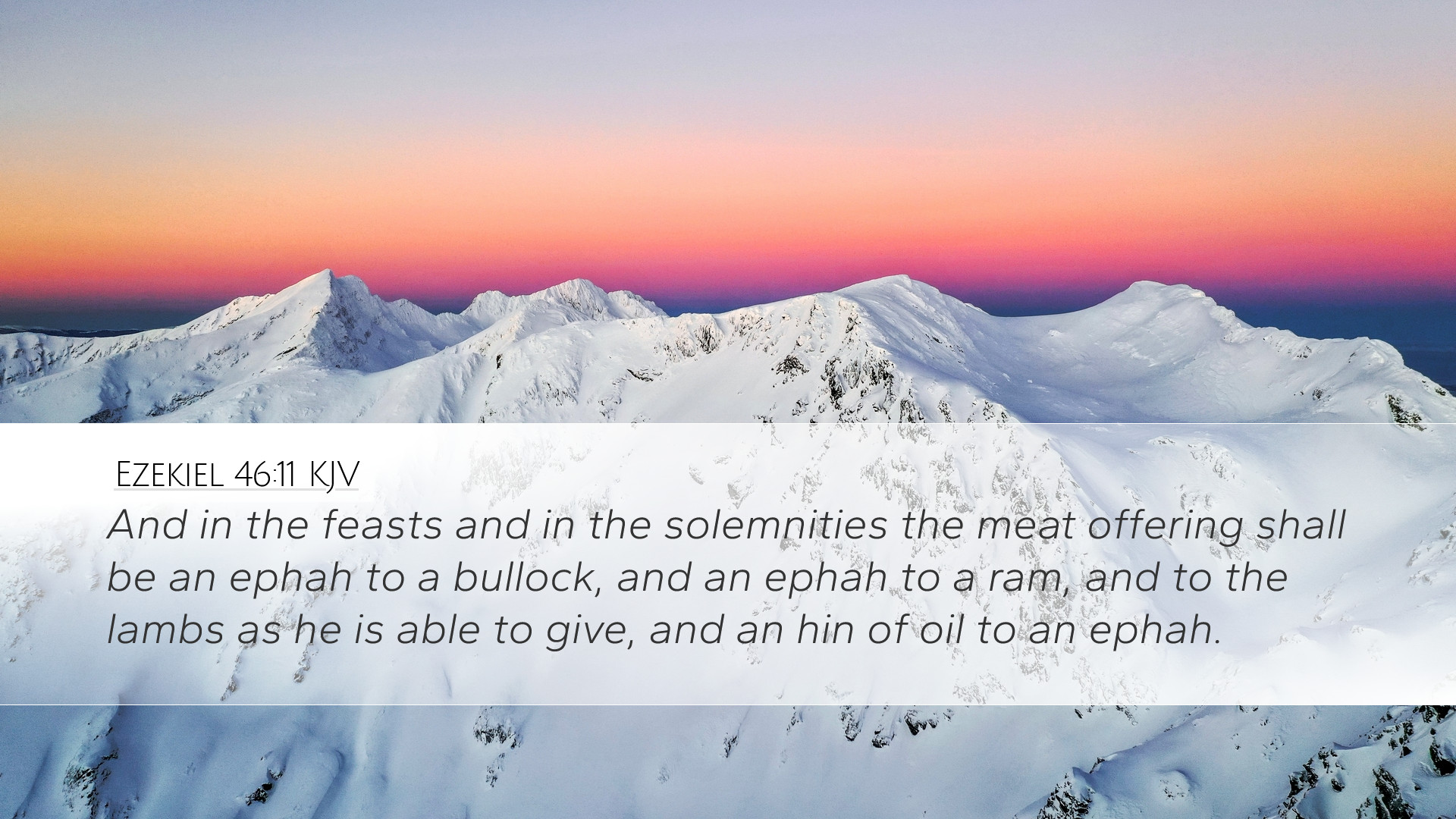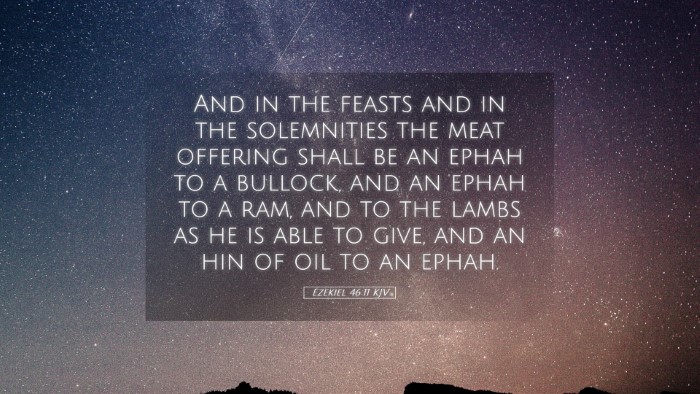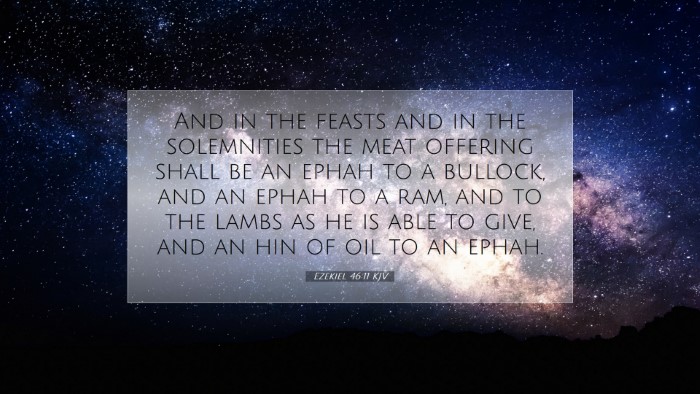Ezekiel 46:11 - Commentary Summary
Verse Analysis: Ezekiel 46:11 states, "And in the feasts and in the solemnities the meat offering shall be an ephah to a bullock, and an ephah to a ram, and to the lambs as he is able to give, and a hin of oil to an ephah." This verse is part of a section in Ezekiel that deals with the regulations for worship and offerings in the future temple.
Contextual Background
The book of Ezekiel, written during the Babylonian exile, speaks to a community that has lost its identity and place of worship. In this context, Ezekiel provides a vision of restoration, including detailed descriptions of a future temple and the re-establishment of worship practices.
- Historical Setting: The Israelites were in despair following the destruction of Jerusalem, and Ezekiel's prophecy brings hope of renewed worship and connection to God.
- Theological Importance: This chapter articulates the significance of regular offerings and the role they play in maintaining a right relationship with God.
Commentary Insights
Matthew Henry: Henry emphasizes that this passage illustrates the attention to detail needed in worship and how it reflects one's devotion to God. He notes that the offerings are specified in size and quantity, revealing God's desire for a structured and sincere approach to worship.
Albert Barnes: Barnes focuses on the symbolic meanings of the offerings. He believes that the ephah represents the fullness of provision from God and that the various animals signify different aspects of sacrifice. He suggests that this verse encourages believers to bring their best to God and to recognize the significance of collective worship.
Adam Clarke: Clarke examines the specifics of the offerings mentioned and the cultural context in which they were practiced. He points out that the use of grain and oil alongside animal sacrifices signifies a comprehensive approach to worship that includes both physical sustenance and spiritual significance. Clarke argues that the hin of oil highlights the necessity of anointing and the presence of the Holy Spirit in the act of worship.
Theological Implications
This verse carries profound theological implications for contemporary worship and understanding the nature of offerings.
- Devotion and Dedication: The requirements of offerings can be seen as a call for believers to dedicate their resources, time, and talents to God, reflecting a heart committed to honoring Him.
- Equity in Worship: The phrase "as he is able to give" indicates that God values sincerity over proportion; regardless of resources, each individual can contribute meaningfully.
- Community Engagement: As Ezekiel's instructions imply communal worship, there is an invitation for collective participation in faith practices among believers.
Reflection for Pastors and Theologians
For pastors and theologians, this verse invites a deeper exploration of how communal practices in worship can draw individuals together and maintain a sense of unity and purpose. The passage also raises questions about modern practices of offering and the importance of reminding congregations of their roles in worship.
Key Points for Sermons or Studies:
- Understanding the Role of Offerings: Delve into how offerings symbolize more than just financial contributions but also the heart of the giver.
- God's Instructions Matter: Address the importance of adhering to God's guidelines in worship, reflecting a desire for order and holiness.
- The Heart of Worship: Emphasize that God desires a relationship over rituals, calling believers to examine the motives behind their acts of worship.
Conclusion
Ezekiel 46:11 serves as a reminder of the relevance of worship in the life of believers. The specificity of the offerings reflects God's desire for thoughtful and intentional worship. As we reflect on this verse, may it inspire not only ritualistic observance but genuine devotion and commitment to God.


